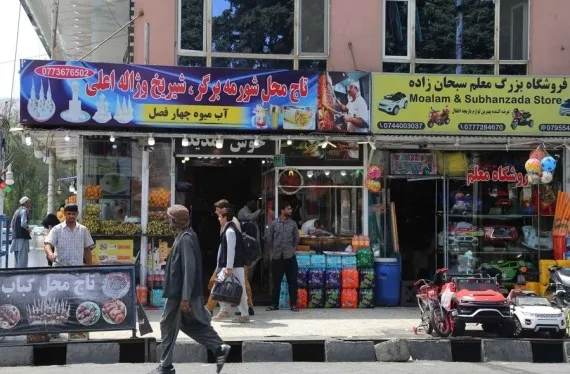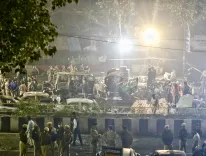What Caused the Disruption of Flights and Communication in Afghanistan?

Synopsis
Key Takeaways
- Internet blackout significantly disrupts communication and travel.
- Stranded passengers face uncertainty at international airports.
- Afghans abroad are cut off from family and friends.
- Economic challenges may worsen due to ongoing disruptions.
- Residents express frustration over declining internet service quality.
Kabul, Sep 30 (NationPress) Flights and communication were disrupted following a significant internet blackout in Afghanistan, raising concerns about transportation, trade, and the ongoing humanitarian and economic crisis, as reported by local media on Tuesday.
On Monday evening, flights to Afghanistan were halted, stranding travelers at Dubai International Airport, according to Afghan news agency Khaama Press.
Social media platforms revealed images of individuals waiting in congested terminals, uncertain of when flights would resume to Afghanistan. The flight disruptions led to considerable frustration and anxiety among travelers.
Afghans residing abroad found it impossible to reach out to their relatives in Afghanistan due to the internet outage, heightening fears about the evolving situation in the country. Observers noted that such internet interruptions not only hinder travel but also raise concerns regarding communication, trade, and the functionality of businesses and households within Afghanistan.
Passengers expressed dissatisfaction with the limited guidance provided by airline and airport personnel, which only heightened the confusion. International analysts cautioned that ongoing disruptions could exacerbate Afghanistan's economic challenges, complicate aid coordination, and further isolate residents from the international community.
This is not the first instance of internet shutdown-related issues in Afghanistan. Earlier on September 30, numerous individuals in Kabul reported poor internet speeds and the complications arising from this after fiber optic services ceased functioning in 10 provinces.
Kabul residents noted that the decline in internet speed severely affected their work. Wajid, a pharmaceutical company employee, mentioned that 90 percent of his job relies on a reliable internet connection. However, the slow service hampered his productivity, as reported by Afghanistan-based Tolo News.
"We require fast internet because sometimes our location messages fail to send or deliver. This leads to significant challenges in our office," he shared.
Several other Kabul residents also indicated that internet service disruptions have adversely impacted their online education programs and both personal and work-related communications.
Shams, another Kabul inhabitant, raised concerns about the difficulties in marketing without better internet access. He stated, "With high-speed internet, we could advance in marketing, and in areas with reliable internet, we could contribute to our country's progress."
Residents of Kabul voiced their grievances after fiber optic services were suspended in 10 provinces: Balkh, Kandahar, Herat, Helmand, Nangarhar, Laghman, Badakhshan, Takhar, Kunduz, and Baghlan over the past week, as reported by Tolo News. The Taliban's directive led to the suspension of fiber optic internet in these provinces.









